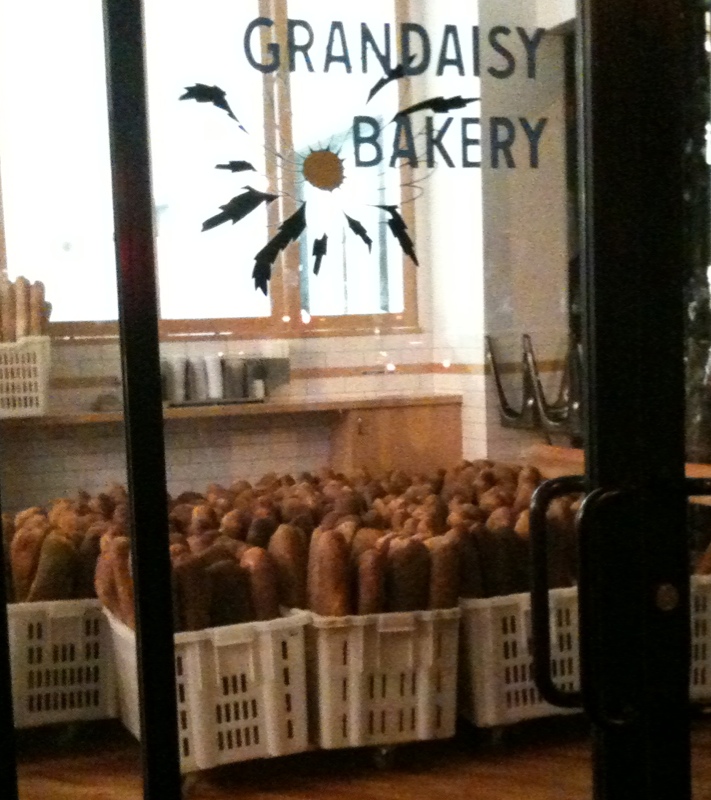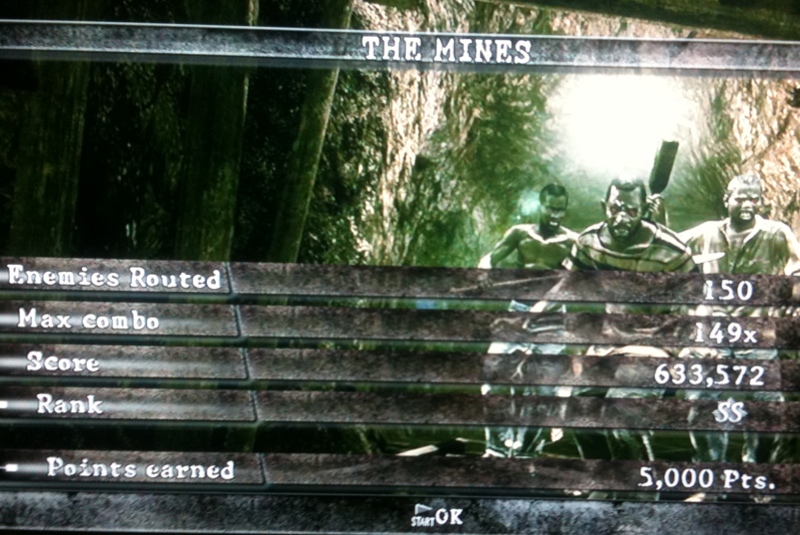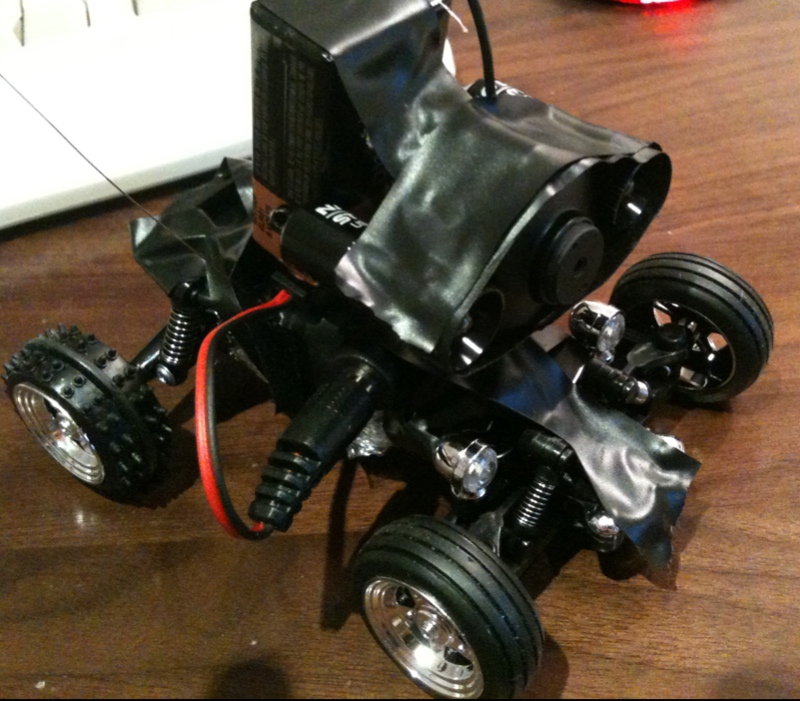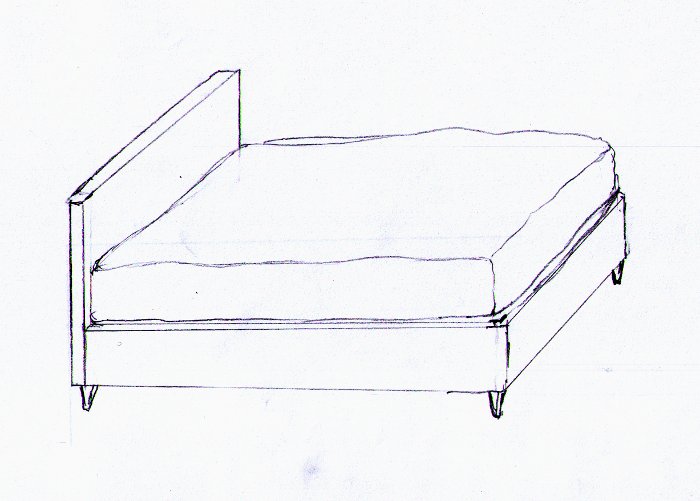January 5, 2012
December 27, 2011
December 23, 2011
We routinely say "I have an idea", but I assert that nobody can own an idea. The closest one can come to owning an idea is to have private (possibly exclusive) possession of it. Sitting on an idea (or indeed implementing it and using it privately) could prevent others from implementing the idea, but it also would not prevent them. What is interesting about this, too, is that one would have no way of knowing if they had exclusive possession of the idea, since others could also possess it privately.
I've often heard things such as: "If I have an idea for something great, I should be able to benefit from it." I don't think it is that simple, nor do I think it should be. I like to imagine it from the perspective of conservation of energy. In my opinion, "having an idea" doesn't cost anything -- there's no work done, no trial and error, no refinement, no experimentation, it's purely the creation of an abstract concept. All of the work, all of the energy required to develop the idea into something real, that happens after having an idea. All of the work of implementing (or at least designing an implementation or possible implementation) is the where the value is created, and that is from what a person should be able to derive benefit.
If you suppose for a moment, that someone could have some sort of exclusive right over an idea, what would that actually mean? Could they prevent other people from doing anything that could be conceivably based on that idea? Could they demand a share of any derived revenue, or control? Could they demand credit? For how long? Ugh, chaos follows. The world would grind to a halt due to this complexity. The advantage you get for having an original (or at least somewhat original) idea is a slight head start.
An idea is something that one can benefit from, but that the rest of society also has the same opportunity for benefit. This actually makes me quite happy.
What does one do if they have an idea and want to make it into something real, but have no applicable skills? Hire people. No money? Make non-disclosure agreements or other contracts which will help protect what other people do with the information you given to them, and prevent them from doing other things that could possibly relate to the idea. This is a joke, though, few talented developers will agree to these sort of terms. Both sides need to have something of value to offer, and ideas are not value held by either side, because they are not able to be owned.
A friend brought the subject of Facebook up after seeing The Social Network.
- Facebook became huge because of how it was made and marketed.
- The idea for Facebook wasn't a new, nor original, idea.
- Even if it was some brand new idea, it doesn't matter, since nobody can own the idea.
TL;DR: Ideas are worth a lot to society, but not much to individuals. Execution is the opposite.
Finally, some advice for anybody who wants to make things and profit from them: figure out something you can contribute; ideas aren't enough. If you're content to just contribute to society: publish your ideas, let people use them, and hope for the best.
(also, a related post that I previously linked to and agreed with, but the notion that the worth of ideas differs for society as a whole vs the "owner" is new for me)
7 Comments
December 17, 2011
December 16, 2011
The rest of the album is pretty solid, too, but the feel of this one does it for me.
I will also go ahead and say that, for the record, the last two Radiohead albums are completely awesome. Just in case anybody wondered.
2 Comments
December 9, 2011
August 4, 2011
August 3, 2011
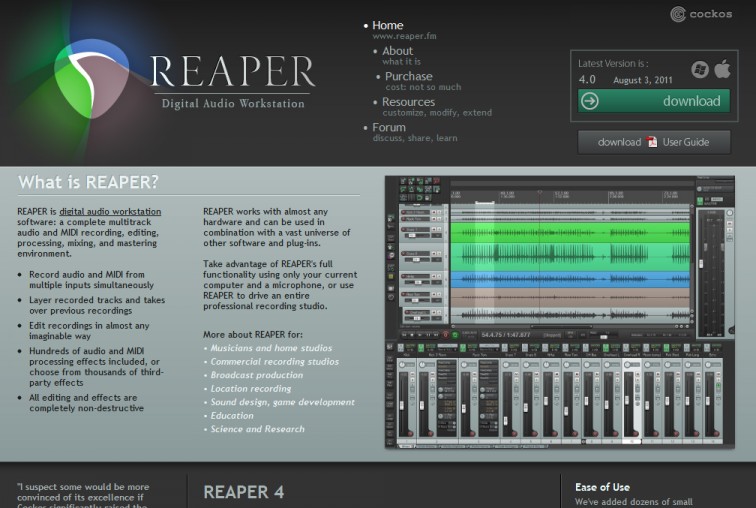
Hooray! Thank you to my fine coworkers/coconspirators: Schwa, Christophe, Ollie, White Tie, Geoff, and all of the lovely people who helped test
and gave valuable feedback. Schwa and White Tie did a fantastic job on the new web site, too, I must say. <3
Soon after posting the new website (thank you, git, for making that easy), and after grabbing a celebratory coffee, I noticed the web
site was a bit slow. The CPU use was low (an Amazon EC2 instance), but on looking at the bandwidth graph I saw it was pushing a ridiculous amount
of traffic (presumably saturating the link, even). After mirroring the downloads to a CDN (CloudFront), all was well. Thank you, Amazon. I'm very
impressed with AWS/EC2/etc. It's good stuff.
8 Comments
July 27, 2011
louie - 2 -- [4:07]
louie - 3 -- [3:21]
louie - 4 -- [3:05]
louie - 5 -- [3:03]
louie - 6 -- [16:11]
louie - 7 -- [3:15]
louie - 8 -- [6:14]
louie - 9 -- [6:09]
louie - 10 -- [5:56]
July 22, 2011
July 14, 2011
If you read that (awful) explanation, and didn't understand it or care, I apologize, you can stop reading now because it will only get more boring and less intelligible.
We have made some common code to filter out these numbers, as many others no doubt have done:
// boring code omitted, see WDL/denormal.h for the full code // WDL_DENORMAL_DOUBLE_HW() is a macro which safely gets you the high 32 bits of a double as an unsigned int. static double WDL_DENORMAL_INLINE denormal_filter_double(double a) { return (WDL_DENORMAL_DOUBLE_HW(&a)&0x7ff00000) ? a : 0.0; }The above code pretty simply looks at the exponent field of the double, and if it is nonzero, returns the double, otherwise it returns 0.
Recently it came to our attention that we actually needed to filter out larger numbers as well (when sending those numbers through a process such as a FFT, they would end up as denormals). If we pick a number around 10^-16 (not being picky about the exact cutoff), which has an exponent of 0x3C9, we can choose to filter when the expoenent field is under that value:
static double WDL_DENORMAL_INLINE denormal_filter_double_aggressive(double a)
{
return ((WDL_DENORMAL_DOUBLE_HW(&a))&0x7ff00000) >= 0x3c900000 ? a : 0.0;
}
That was pretty much free (ok slightly larger code, I suppose). One nice thing
that became apparent was that we could filter NaN and infinity values this
way as well (exponent == 0x7FF), with only the cost of a single integer addition:
static double WDL_DENORMAL_INLINE denormal_filter_double_aggressive(double a)
{
return ((WDL_DENORMAL_DOUBLE_HW(&a)+0x100000)&0x7ff00000) >= 0x3cA00000 ? a : 0.0;
}
Note that the exponent is increased by 1, so that 0x7FF becomes 0, and we adjusted the cutoff constant for the change.
An extra thought: if you need to pick the cutoff number more precisely, you could change the mask to 0x7fffffff and the cutoff (0x3cA00000) to include some of the fraction digits...
Additional reading: IEEE_754-1985.
Oh and happy bastille day!
3 Comments
July 1, 2011
louie - 2 -- [3:35]
louie - 3 -- [7:40]
louie - 4 -- [10:27]
louie - 5 -- [14:21]
louie - 6 -- [5:36]
louie - 7 -- [4:50]
louie - 8 -- [2:37]
louie - 9 -- [12:23]
June 29, 2011
louie - 2 -- [4:00]
louie - 3 -- [5:22]
louie - 4 -- [3:18]
louie - 5 -- [5:12]
louie - 6 -- [6:28]
louie - 7 -- [7:28]
louie - 8 -- [3:30]
louie - 9 -- [2:47]
louie - 10 -- [3:55]
louie - 11 -- [4:44]
louie - 12 -- [4:15]
louie - 13 -- [3:08]
louie - 14 -- [2:59]
June 16, 2011

where I'm flying through space
hoping there are no power lines
2 Comments
May 14, 2011
Comment...


